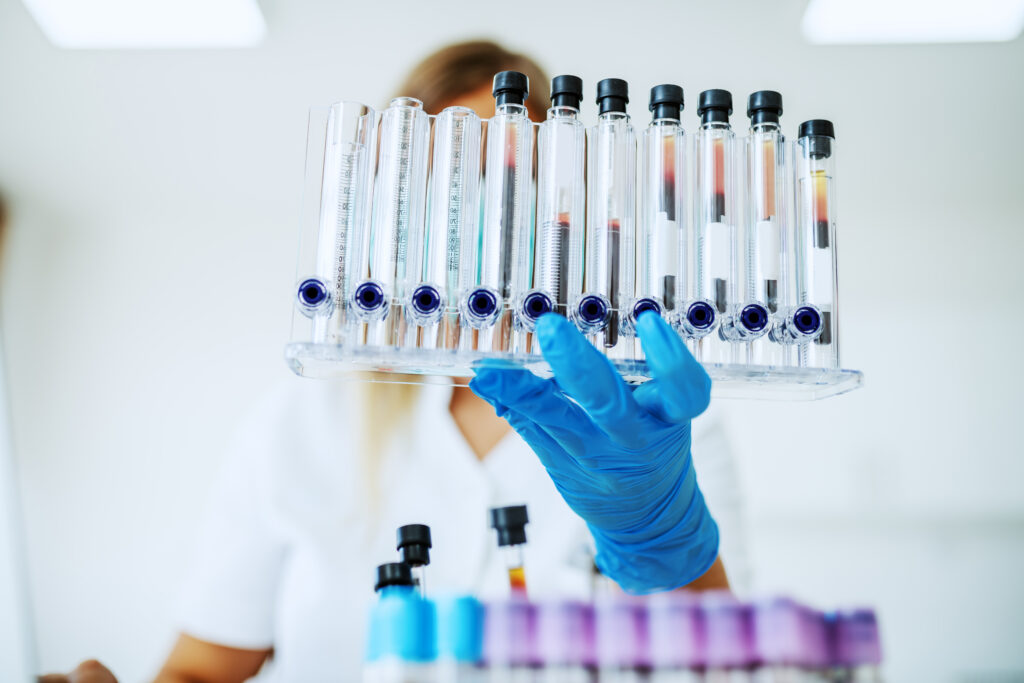Once a cell line has been fully developed and characterized to meet desired production specifications, it is common to bank the cell line by freezing and storing seed vials in liquid nitrogen. Thus, the typical biomanufacturing workflow results in a long list of highly specialized raw materials at each point in the development process.
The most fundamental raw material for biomanufacturing is culture media. Media may be commercially sourced or produced using a combination of amino acids, vitamins, inorganic salts, and glucose. It is often supplemented with serum to include growth factors, hormones, and adhesion factors to enhance cell viability and proliferation.
When to Test
As each of these raw materials is introduced to the manufacturing process, the possibility arises of introducing a contaminant to the workflow. Mycoplasma is a common contaminant in each of these raw materials. In the event of a raw material introducing mycoplasma to a culture or final product, it becomes very challenging to determine which raw material was responsible for contamination, since many of these materials are added in parallel, and noticeable adverse results from the contamination may not present until further downstream of the reagent addition.
To prevent mycoplasma contamination from raw materials, it is advised to test raw materials for mycoplasma upon initial receipt of the material before it enters the manufacturing workflow. Due to the small, versatile nature of mycoplasma, it is possible for the contaminant to exist even in commercial grade raw materials, antibiotics, and liquid nitrogen—conditions not amenable to many other contaminants. Therefore, it is best to prevent contamination of existing biomanufacturing processes by testing all raw materials for mycoplasma early.
Additional supplements may also be required for unique cell cultures.
Supplements may include:
- Growth Factors
- Enzymes
- Antigens
- Recombinant Proteins
- Inhibitors
- Stem Cell Factors
- Binding Proteins
- Stimulating factors (for enhanced proliferation)
- Cytokines (for specialized cell signaling activation)
- Bovine serum albumin (for enriched culture growth and reduced oxidative stress)
Other various reagents are necessary and common to all culture conditions. As cell lines are validated, they are flash-frozen in liquid nitrogen for long term storage.

Example Reagents
Cell Culture Media
Cell Dissociation Reagents
(e.g., trypsin)
Serum
Buffers and Salt Solutions